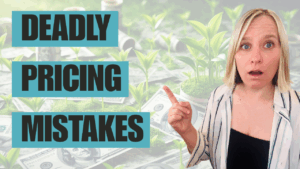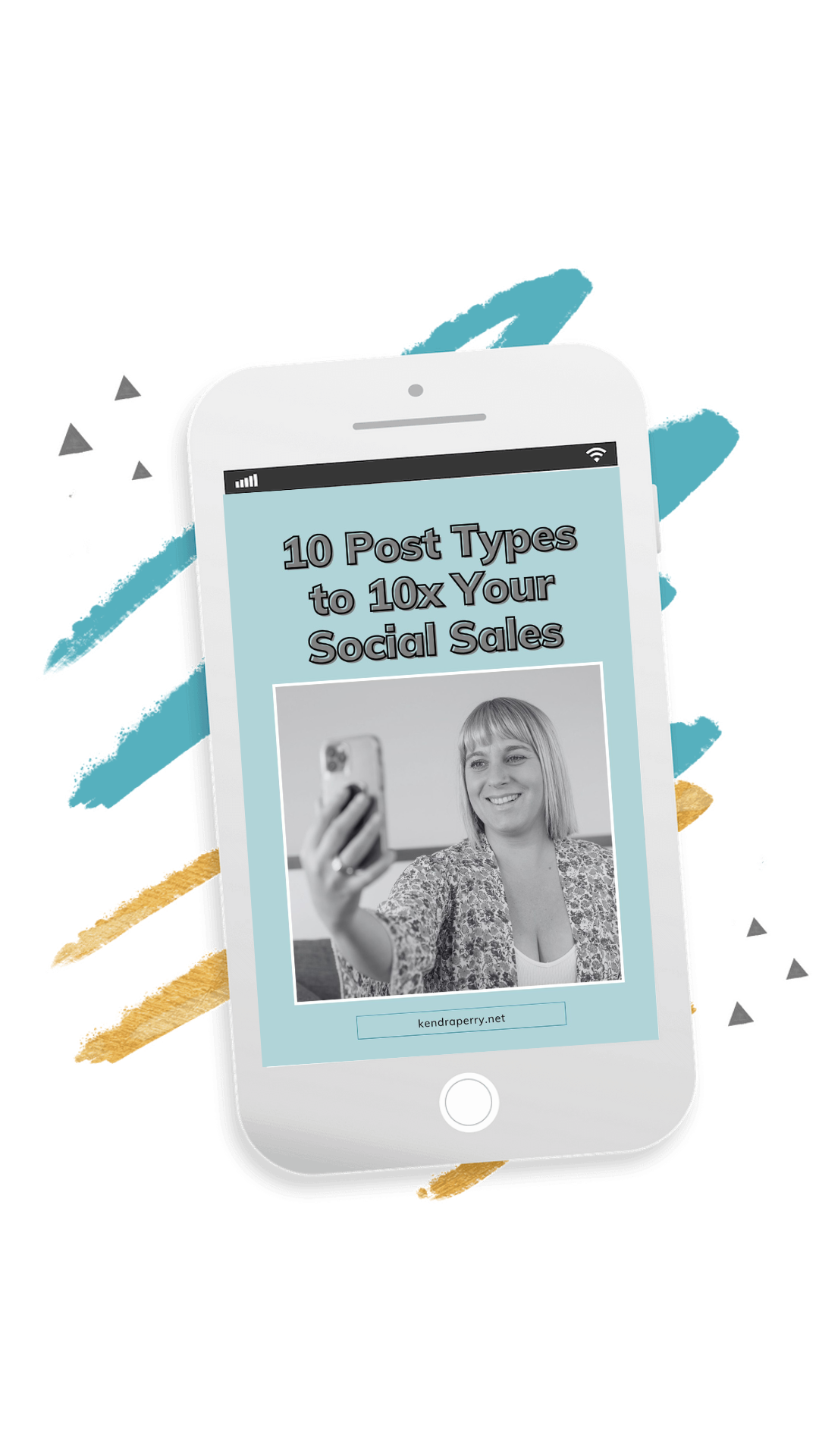If you’re a health practitioner who is active on social media, dealing with haters and censorship is one of the things you should be thinking of. When it comes to health, no matter what you say, it’s going to be polarizing, and some people are definitely not going to like it, whether it’s your followers or the social media platform itself. But that’s not something to be afraid about. Kendra Perry argues in this episode that you can never please everybody and there is no point in trying to. Instead, focus on delivering value to your raving fans, respond only to constructive criticisms, and ignore hateful and disrespectful comments. As for censorship, it’s probably something you shouldn’t be worrying about unless you’re talking about things that social media platforms don’t like you to talk about. In which case, you have more than just your social media to push your content through. Tune in and learn more!
—
Listen to the podcast here
Bullies To Big Brother: Dealing With Haters & Social Media Censorship
I’m pumped to be with you. I’m very excited about spring. As you may or may not know, I love winter. It’s one of my favorite times of year because I love to ski. Honestly, there is nothing I love more than skiing deep powder with my friends and my partner being a fucking weirdo, screaming crazy things, and being idiots. It’s literally probably my big why for everything I do in life. As much as I love winter, I am always happy when it comes to an end.
Typically for us in British Columbia, at least where I live, by March, people are typically biking. I’m still full-on tunnel-vision skiing. Once April comes around, this is where I want to start biking and I start thinking about the beach. You never know whether you’re going to get into the mountains, but sometimes in early or mid-April, we can go camping. Oftentimes we start to get beach days and it’s beautiful where I live. I love it. I’m feeling those spring vibes.
Dealing With Haters
I want to talk about a topic that has been heavily requested. It’s something that I see a lot of fear around when it comes to being online with your business. That is the haters and then the censorship that we get from these big tech platforms. I want to start with the haters because anytime you put yourself out there online, you’re going to get some hate. You’re going to get some people challenging your viewpoints.
Sometimes people aren’t very nice. We have that filter. People are anonymous and sometimes they say some fucked up shit. It’s going to happen. I’m not going to sit here and be like, “You’ll be fine.” It definitely happens. I’ve had some people lash out at me on social media, which hurt me. It made me cry in the shower.
I don’t go there anymore. I have developed a pretty thick skin, which is something you can do too. You can also develop skills and tools to help yourself manage the hate that you might get sometimes. I’m always going to be 100% honest with you. As a health coach or health practitioner, someone who is teaching about health and wellness online, you will likely get more hate than I will in the business space.
Why is that? The reason for this is that health and wellness is polarizing. It splits people down the middle and they’re either on one side or the other side. There are so many opinions about health and wellness and it’s very personal. You don’t even have to talk about things that seem that controversial in order to be polarizing.
For example, you could say oatmeal is an unhealthy breakfast and you should eat this other thing instead, like eggs or bacon. That would be polarizing. The oatmeal people would come for you. If you are someone who supports a meat-based diet, vegans are going to come for you. If you’re someone who supports fasting, there’s going to be people that are like, “That’s going to wreck your thyroid.”
If you are talking about keto, the high-fat people are going to be like, “You’re the best,” and then the carnivore people are going to be like, “Fuck you.” It’s polarizing it. You don’t even have to be that controversial or be seemingly controversial in order to be polarizing and get a lot of different opinions. This can be scary. What this can lead to is you not sharing your opinion and creating very vanilla or safe content on social media, but that is not going to serve you.
It’s very good to be polarizing. It’s very good to have specific opinions where other people do not agree because polarizing content ultimately creates comments. It creates engagement because people have something to say about it. I want to clarify because I know there’s been some confusion when I’ve talked about this in the past. When I say polarizing, I’m not talking about you getting out there and talking about the vaccine. You should go out there and talk about 5G. You should go out there and talk about the Republicans versus the Democrats versus the Liberals versus the Conservatives. That is not what I’m saying.
We’ll talk a little bit more about those topics when we talk about censorship. I’m just saying that you need to have an opinion. Safe and vanilla content will not grow your business, and it will not create that community of raving fans who think you’re the best. It is totally okay that some people aren’t going to agree with you, and that is probably going to be triggering in the beginning, but you can learn how to manage it.
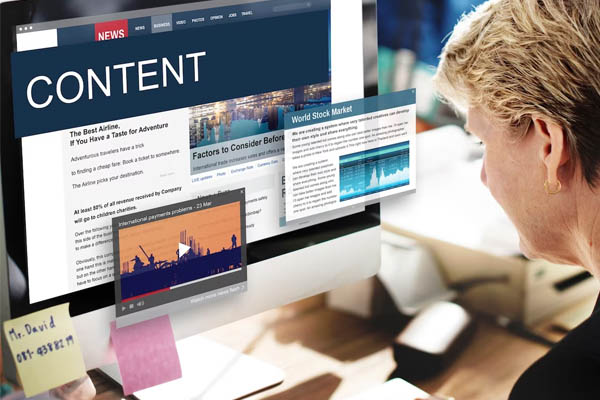
The first way to think about managing this is to remember that even the hate comments that come to your account on your posts are helping your engagement. All those haters who are hating on you are helping you grow, and they’re contributing to you getting your information out there to more people. Hopefully, you can take some comfort in that. You can see the hate, you can feel the trigger, and then you can say thank you, “Thank you, hater. I appreciate that. You’re helping me get my message out there for this information that you’re very against.”
It is totally 100% okay that people don’t agree with you. This is a big problem in our society nowadays. We are fearful of people who don’t agree with us and people who challenge our viewpoints. We’ve definitely seen that to a great scale intensely over the past few years. It’s broken families and friendships apart. I think that’s sad and ridiculous because we are all different human beings.
We come from very different backgrounds. We have very different upbringings. We all see the world differently. Our brain chooses what it’s going to process and take in as information versus not. Even when we’re both looking at the same landscape, we all view it very differently. It’s a bit ridiculous to assume that everyone would agree with us and that everyone would have the same opinions of us.
Different opinions are what makes the world beautiful. I don’t want everyone to agree with me. I like when people disagree with me. I’m not a confrontational human, but I like to have critical-thinking discussions. I like to learn. I like to see things from other people’s perspectives, even when I might know that I would never ever agree with that perspective, and that’s okay. I encourage you to welcome other viewpoints, criticisms, arguments, and challenges to the content that you put out there. If you can put your ego aside, you might learn something from it.
As a health coach, I’m very opinionated about certain things. I got some hate and people who challenged my opinions. I had that initial trigger, that initial ego hit. Once I got past that, I could look at the comment. I could dissect it and think, “Does this person have a point? Is there something I need to learn more about? Is there something I need to dive into more deeply?” It challenged me to become a better clinician and practitioner because I decided that I wasn’t always going to ignore some of the constructive criticism in my comments.
I want to quickly make the distinction between constructive criticism and hate. There’s a big difference. There are some people who respectfully will say they disagree with your perspective, your point of view, and your opinion and share theirs. There’s nothing wrong with that. That’s the stuff I welcome. There are people who are dicks and assholes.
When you get some comment that disagrees with you on your social media posts or maybe in response to an email, first, look at it and ask yourself, “Is this constructive or is this disrespectful?” For the ones that are mean and disrespectful, I don’t think you need to respond at all. You are not obligated to respond. It’s your social media channel, it’s your post, and you can decide whether you are going to respond or not.

You can also delete the comment. I don’t recommend that because comments help our post better. A lot of times, someone will comment on something and I’m like, “I’m not going to respond to that. That doesn’t warrant a response and I will ignore it.” If it’s constructive criticism, I do recommend that you respond because this will teach you communication in the face of conflict. When I’m saying conflict, I’m not meaning like you’re duking it out, punching it, and starting to scream at each other. I mean conflict when you are disagreeing. There’s a lot you can learn about it and how to respond.
When it comes to responding, if you do get triggered and it’s constructive criticism, your ego’s probably involved. I’m not sitting here shaming you. It happens to all of us. It happens to me too. It’s part of being human. I’m not saying, “Look at you and you’re fucking ego, girl or boy.” That’s not what I’m saying. I’m saying be aware of it. Our ego plays into everything. I don’t think the point of the world is to get rid of our egos. It’s learning what they’re doing, how they’re helping us, and learn how to be friends with them.
Know when you’re getting triggered, especially with constructive criticism, your ego’s probably getting involved or there’s fear. “Am I saying this wrong? Did I share the wrong information?” You might start to doubt yourself. That’s probably going to happen when you get a comment like that. The first thing you want to do is take a breath.
Just take a breath and walk away because when we’re triggered, as you probably know, you’re going to be in a state of fight or flight. Nobody thinks clearly when they’re in a state of fight or flight. It’s rare that we will respond to something in a state of fight or flight and be proud of it or not regret it. Anytime I respond, when I’m fired up, I’m in fight or flight. I got triggered. I’m feeling all these emotions. I usually wish later on that I had waited to respond.
I want you to sit with this concept, wait to respond. See the comment. Take a breath. Walk away. You are not obligated to respond right away. You’re not obligated to respond at all. This can be very helpful for your growth. I do recommend responding in a very respectful, human, and kind way. It might be a matter of you saying, “That’s interesting. I would love to look more into that. Thank you for sharing.” It could be as simple as that. Also, “That’s an interesting perspective. I’m definitely going to do more research on this topic. Stay tuned.” Something like that.
You can respond when your nervous system is balanced again, when you’re back in that parasympathetic state, when you feel calm. Once we’re out of that, things often look very differently once we put a bit of space between them. Criticism, hate, disagreements on social media often require space. If people took more space versus commenting when they’re fired up in the moment, we’ll live in a very different world. Social media would be very different environment, but we got a bunch of people whose nervous systems are fired up. They’re angry, they’re upset, they have whatever emotion, and they’re typing in the moment when they’re full of emotion versus allowing it to settle.
Allowing that space and maybe coming back later and deciding, 1) “Do I want to respond?” 2) “If I am going to respond, am I calm? Am I parasympathetic? Am I thinking clearly?” That’s how I’d recommend dealing with that thing. I’ll always be honest with you because the very nature of health is polarizing. It’s very easy for people to get offended by all kinds of different things. If you said, “I don’t think smoothies are helpful,” someone would probably come at you for that. If you said, “Oatmeal’s a terrible breakfast,” someone would come at you for that. If you said, “I don’t think Vitamin D supplements are good,” someone’s going to come at you for that. That is okay because I want you to take a stand.
You have opinions, and we are not here in this life, on this planet to play it safe and to share boring-ass vanilla content that has no impact on anyone. If you want to have impact, it’s time to have an opinion. Take a stand, because I know you have many opinions. Other people are not going to have the same opinions of you as you and that is okay.

It’s so good to be polarizing on social media and have an opinion because this is what will grow a following. I am totally jealous of you because business is not as polarizing. There are some things for sure and I can get people fired up when I talk about my views on passive income when I talk about my views on social media and selling. I can get a little bit polarizing, but it will never be as good as health.
I believe if I was in health still, I would’ve grown a lot quicker, a lot faster with my social media and with my audience because I have so many opinions. I want to throw that out there because people are going to come at you and you are going to have to learn how to develop that thick skin. In the beginning, like I said, it is going to trigger you. You might shed some tears. That’s okay. I cried a lot in the shower early on.
It’s totally fine. It’s going to challenge you as an expert, as a coach, and as a practitioner, and it’s going to force you to be better. It’s going to force you to learn how to communicate with people who have differing views and opinions. Be a role model for how to communicate in the face of conflict. Be that person. We need more of you like that in the world.
Social Media Censorship
I want to move on to censorship because I did a market research survey. This is one of the topics that had come up a decent amount. People were concerned about, “I don’t know how to be on social media because of the censorship.” This is what I’m going to see. I see a lot of concern over censorship, but I believe this is an issue that has been way blown out of proportion. This might ruffle a few feathers. I know there’s been a lot of people censored and kicked off of social media in the past few years. Especially now that I’m back on Twitter and I’m seeing all these people who were kicked off of Twitter come back on Twitter now that Elon Musk is running it.
There is censorship. There are people that have been de-platformed. In the health and wellness world, I don’t think this is an issue. This fear is preventing people from taking action. A lot of coaches and practitioners might be using this as an excuse not to take action. When we’re talking about health and wellness, there are certain issues where you might get censored. If you’re talking about politics, you might be getting censored, especially if you’re on the right. If you’re talking about vaccines, you’re probably going to deal with some censorship, 5G, and any of those things. If you share alternative points of view, there probably is some censorship going on.
If you’re not talking about those, I don’t see censorship as an issue. I have dozens of friends and I support hundreds of practitioners and coaches who are out there on social media sharing their opinions about health, and they are not getting censored. It annoys me. This grinds my gears a little bit because certain coaches, practitioners, or people online will show their Instagram analytics and be like, “All these people are unfollowing me. I must be getting shadowbanned.” I look at their analytics and I’m like, “That’s what my analytics look like. That’s what everyone’s analytics look like.”
If we’re talking about Instagram, for example, it’s very common that people unfollow you. Sometimes it’s people unfollowing you because they don’t want to follow you anymore, not because you suck or you create content that’s shitty. It’s because maybe they’re not interested in your topic anymore. It happens. Think of all the people that you might unfollow.
The other thing that happens on Instagram is there are a lot of fake accounts on Instagram. There are a lot of bot accounts and Instagram is always cleaning them out. Sometimes, over the years of having people follow us, we get a bunch of these fake accounts following us and then Instagram shuts them down. That looks like an unfollow. This whole term of shadow banning and censorship is being blown out of proportion. People are being like, “I’m being censored. I’m being shadowbanned,” when it’s just Instagram and the way it works. Maybe it’s their content.
It’s easy to complain about being shadowbanned versus working on making your content better. I don’t see censorship on social media for the majority of health and wellness practitioners to be an issue. If you talk about those more polarizing issues I mentioned earlier, like vaccines, 5G, or politics, you may have to worry about censorship. This is what I would recommend.

You may or may not want to talk about those things. You don’t have to. If you don’t want to talk about those very polarizing topics, please don’t. Some of us want to, and I’m not telling you not to. Social media is probably not the place for that. I would save that for your podcast, which is generally uncensored, and your email list. As far as I know, nobody’s getting censored on their email list.
If you want to talk about those topics, save it for your email list, which is a much safer place to share that stuff where you’re not going to be censored. You can allude to it on social media and let them know, “I’m going to be talking about XYZ topic. Join my mailing list because I’m going to be sending out an email.” I don’t see it as an issue. It’s an excuse. It’s a cop-out. It’s being blown at a proportion. Will this change in the future? It could. The internet is a weird place right now. If you’re in Canada, we had a bill pass. I can’t remember the bill name, but it’s an online censorship bill that basically is basically the point is to only show Canadians state-run media.
We’ll see how that all shapes out. You could probably get a VPN. We’ll see how it affects content creators. I’m very interested to see how it shakes out. This concept of censorship is something that you shouldn’t be focusing on. Unless, of course, you’re talking about those very polarizing topics that social media platforms don’t like you to talk about. In which case, save it for your email list. Save it for your podcast. Those are great places to share those types of information. Put it on your blog post.
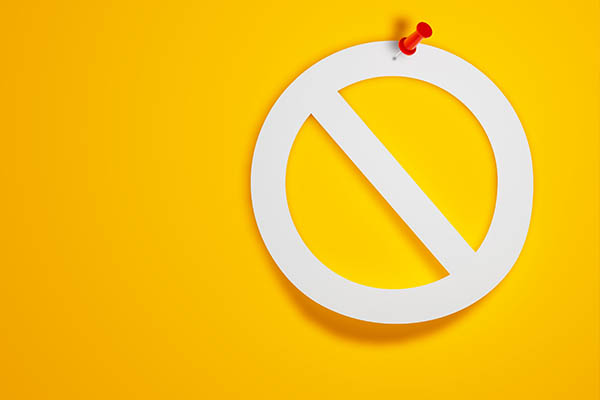
To be honest, for you, I don’t think it’s something that should even be crossing your mind. I want you out there creating regular content, sharing your opinions, being polarizing, taking a stand, and building your community because, in the end, social media is just a tool. The whole goal of social media is to get them on your email list. That’s always the goal.
The best place to sell to your people and communicate with your people will always be your email list. You own that data. You own those email addresses and those names, so long as you’ve been given permission to hold it. The open rate for an email that you send out to your list is significantly higher than the engagement rate on something like Instagram.
For example, if you have good subject lines and you maintain a high-quality list and build good relationships with your list, you can have open rates as high as 30% to 40%. I’ve seen open rates as high as 60% to 70%. Think about that. The average amount of people on Instagram who will see your content, who are following you is 1% to 2%. Keep that in mind.
Social media is a tool. I love social media. It’s a great place to build an audience, to connect with your people, and to share valuable content. I believe that as a health practitioner, because health is so intimate and personal, you do need to be on social media. People need to get to know your personality. They need to see you on video. They need to see your content and words. They need to get to know you before they will ever, ever work with you.
I do think social media is absolutely critical for growth as a health and wellness practitioner, but it is not where everything should be happening. Get people onto your email list, create your freebie, and use that to incentivize people to build your list. That will be your main form of communication. Just to give you some context here. I have a decent social media following right on Instagram. I have under 10,000 followers at the time of this episode.
I could send out a social media post that tells you to buy Health Coach Accelerator, and I could have nobody buy it. If I send out that same email to my list, I guarantee I’ll get some sales. Every time I send out an email that promotes my program, I make a sale. That is not something that I expect on social media. It’s all about list building.
I don’t think censorship should be on your radar. I don’t think it’s something that you should even be thinking about, because honestly, again, unless you’re talking about that small handful of topics that are polarizing, it’s not going to affect you. If you do want to talk about those topics, all the power to you. We need more people out there talking about some of the scarier things. If that’s you, I fully support you, but do that on your email list or start a podcast. Do it on a podcast. Don’t do it on your social media from all these big tech platforms.
If you like this episode, I hope you do, and you want to give me a little bit of support for free, you can give this show a five-star review on iTunes. I would so appreciate that. If you’re like, “Kendra, that’s too much effort,” I get it. I know you’re busy. The next best thing you can do is make sure you are subscribed to this show and read the last three episodes. That is an amazing way for you to support the show. I love you. I hope you have a fantastic rest of your day, and I will see you next time, same place where I help you become wealthy AF.
Important Links
- Health Coach Accelerator
- iTunes – The Wealthy Coach
- https://RateThisPodcast.com/wealthy
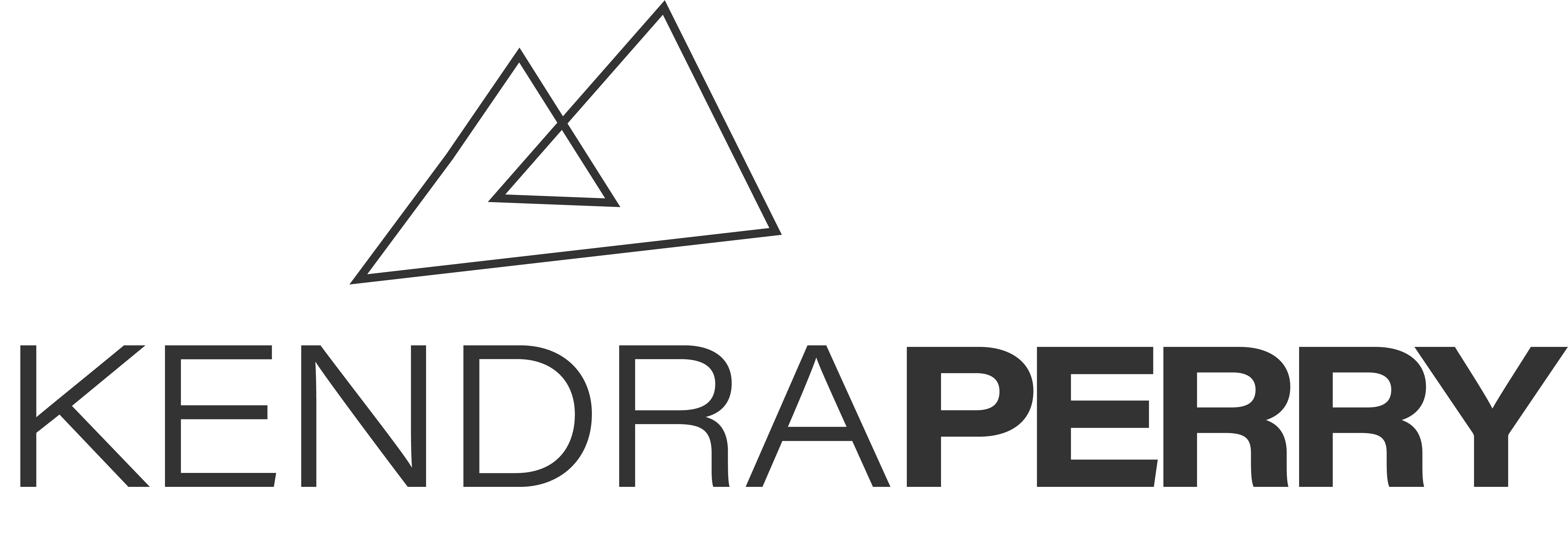
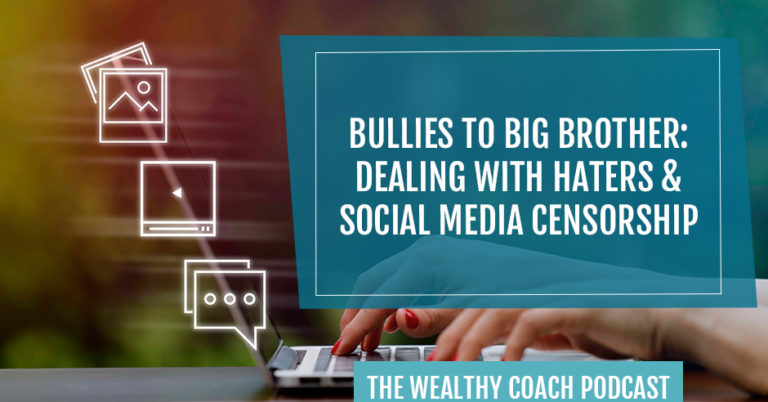
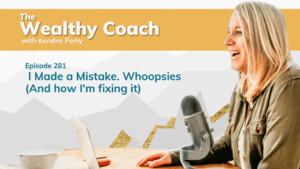
![[BEST OF] A Cautionary Tale About Your Niche](https://kendraperry.net/wp-content/uploads/2025/05/BEST-OF-A-Cautionary-Tale-About-Your-Niche-300x169.png)
